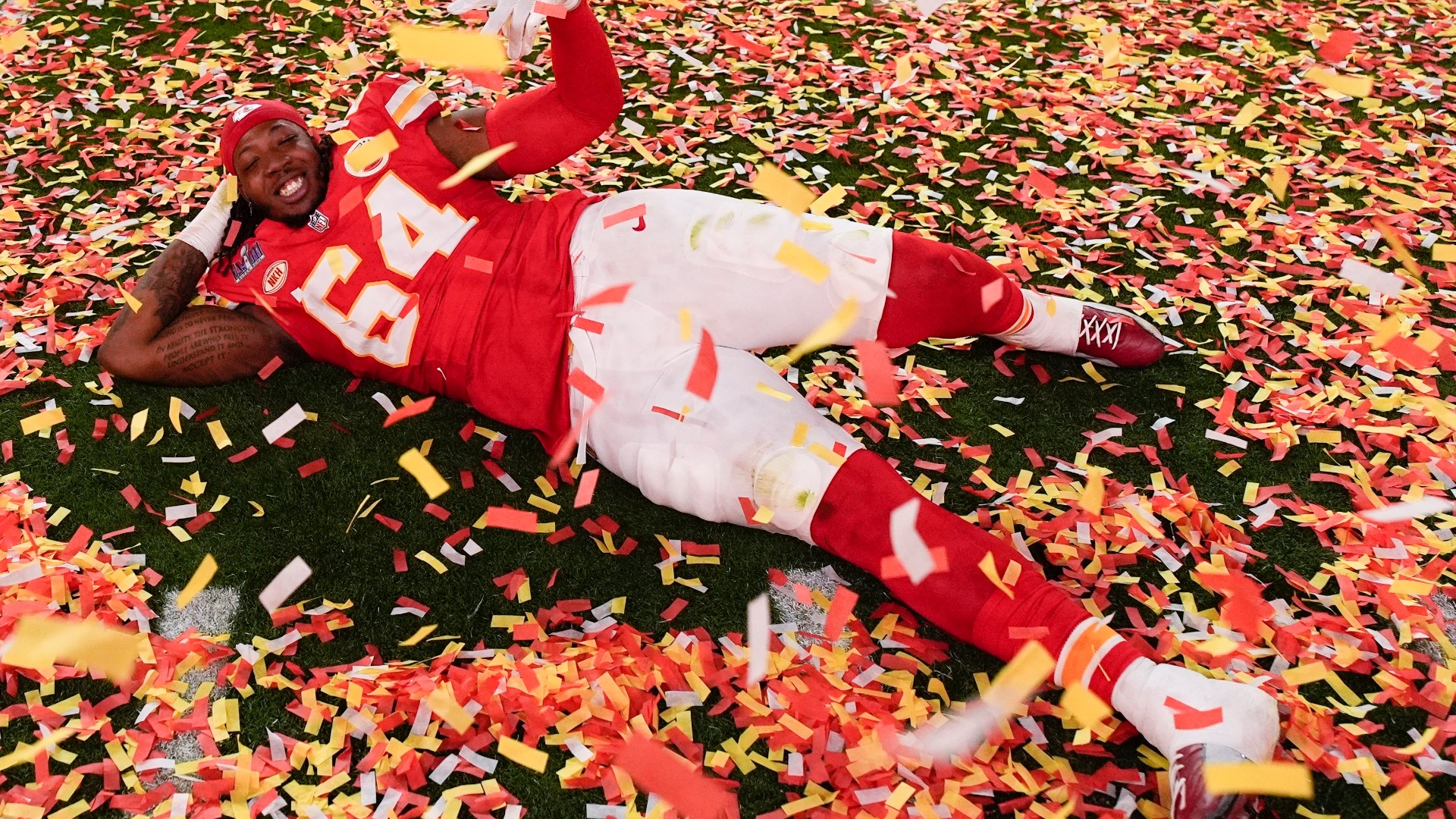The Philadelphia Eagles' championship parade will start at the corner of Broad Street and Pattison Avenue on Thursday morning, weaving five miles north through the heart of downtown. Fourteen jumbotrons will be erected at the Philadelphia Museum of Art. Forty food trucks will set up along the route. There will be 850 portable toilets.
And it all comes with a significant price tag.
In the frenzy of a championship celebration, it's easy to forget about the necessary costs that make it all possible. Parade routes are cleared. Stages are built. Police officers, emergency medical technicians and other city staff are paid to provide support for the event. And afterward, there are crowds to thin, trash cans to empty and hundreds of pounds of confetti to sweep.
The entity that pays for a championship parade — taxpayers, the team, third parties or some combination therein — can vary and sometimes leads to prolonged negotiations.
A review by USA TODAY Sports of recent championship parades found that the costs of celebrations range from the low six-figures to nearly $3 million.
"It’s likely that this has a really important, unexpected impact on (city) budgets," said Brad Humphreys, a professor of economics at West Virginia University. "You can’t plan for these things. It’s not like you can build into your city budget, 'Oh, we’re going to have the Super Bowl parade.'"
In at least one recent case, funding for a championship parade led to conflict between the title-winner and its city.
At the Golden State Warriors' championship parade last summer, owner Joe Lacob promised the cheering crowd that he would cover all the costs of the event, which team spokesperson Raymond Ridder told The East Bay Times were expected to be around $4 million. (Ridder later clarified that most of those costs did not involve government agencies.)
Three months later, the newspaper reported that the Warriors had received an invoice from the city of Oakland for more than $1 million and had not paid it, while Ridder said a final amount had not been agreed upon. Eventually, the Warriors said in a statement that they would pay $786,988, even though they claimed it was more than double the original estimate provided by the city.
"Most American cities cover the majority of the expenses associated with victory parades," Golden State said in the statement. "We have made this decision despite our disappointment with the process and the large disparity between the two estimates."
Oakland spokesperson Karen Boyd confirmed that the Warriors paid the amount in full. Ridder said in an e-mail that the organization spent about $3 million total on each of its championship parades in 2015 and 2017, including the $786,988 that was paid to the city last year. He said Oakland chipped in "minimal funds" for the 2015 parade.
All told, USA TODAY Sports contacted the 12 cities that have hosted at least one championship parade over the past four years and found that, in most cases, city governments — and, by extension, their taxpayers — do pay at least part of the bill.
Cleveland, for example, covered more than $608,000 in costs during the Cavaliers' celebration in 2016, city spokesperson Daniel Williams confirmed. The San Antonio Spurs' parade cost more than $433,000 two years earlier, though city spokesperson Thea Setterbo said more than $66,000 was funded by parking and concession revenues at the Alamodome.
"We've hosted multiple sports parades lately ... and consider the costs part of our regular course of business," Pittsburgh spokesperson Tim McNulty wrote in an e-mail when asked about the costs of the Penguins' championship parades in each of the past two years. "We close the streets and provide public safety protection. The teams provide the rest: vehicles, stage, sound, marching bands, etc."
However, in some cases the costs can be extreme. In 2016, the city of Chicago shelled out $2.99 million to ensure that Cubs fans were able to celebrate their team's first World Series title in 108 years, according to Molly Poppe, a spokesperson for the city's office of budget and management.
"This is no different than most sporting events across the country," Poppe told The Chicago Sun-Times, which first reported on the costs of the parade. "The teams and/or leagues do not typically pick up these costs."
Other cities have been able to cover at least some of the costs through third parties. Houston spokesperson Alan Bernstein said a group of sponsors covered "virtually all costs" of the Astros' parade in November, though the final numbers are still being tallied. The costs of parades in Denver in 2016 and Kansas City in 2015, meanwhile, both exceeded six figures but were mitigated by third parties.
Sponsors covered $300,000 of the $350,000 bill for the Royals' parade, according to a press release from the city, while the nonprofit entity "Visit Denver" covered 64% of the Broncos' bill ($109,000), city spokesperson Amber Miller confirmed.
Yet Humphreys said even moderate unexpected costs — like overtime pay for police, or sanitation workers — can have an effect.
"It adds up for cities that are cash-strapped," he said.
As for Thursday's parade, Ajeenah Amir, a spokesperson for Philadelphia mayor Jim Kenney's office, wrote in an e-mail to USA TODAY Sports on Tuesday that the city does not have an estimated price tag for the celebration, nor firm information about which costs the city will cover.
Kenney, however, said in a radio interview Monday that "we're paying for it."
And he's OK with that.
"After 50-some years? It's fine," Kenney said on WIP 94.1 FM. "We'll find the money."


